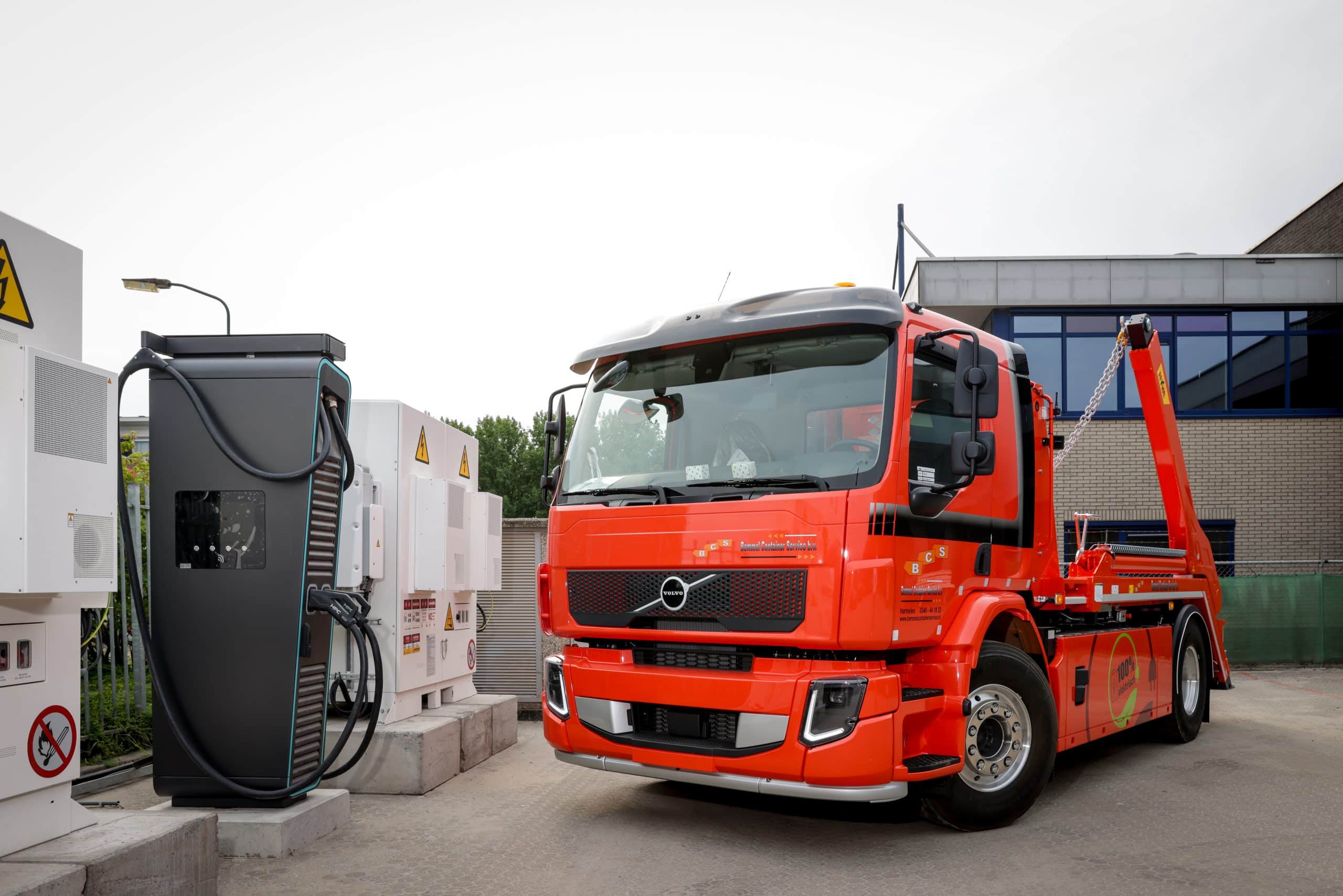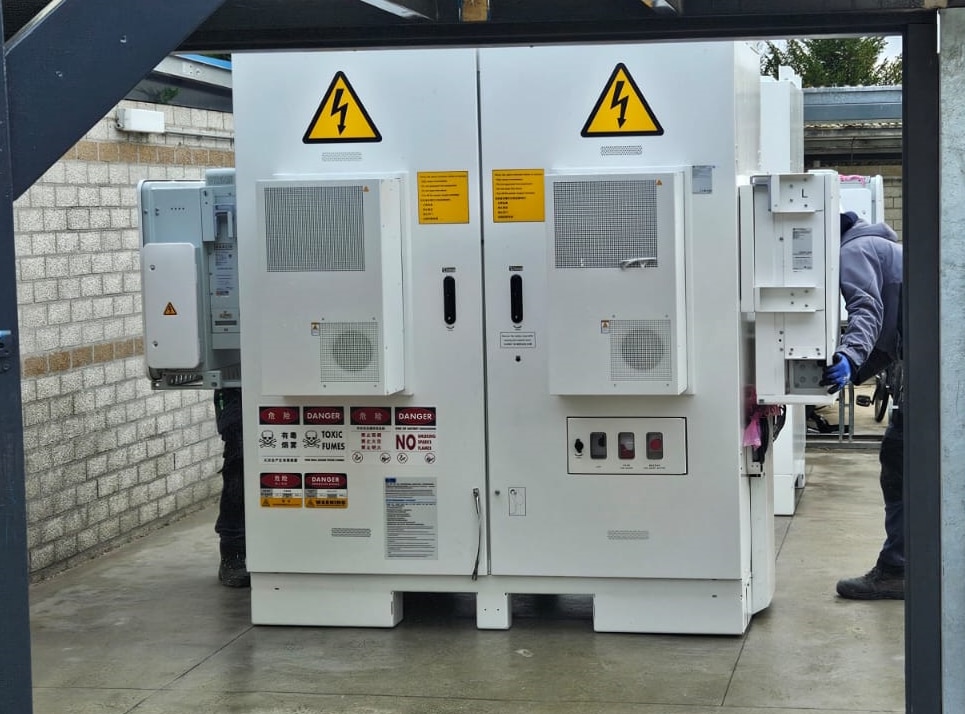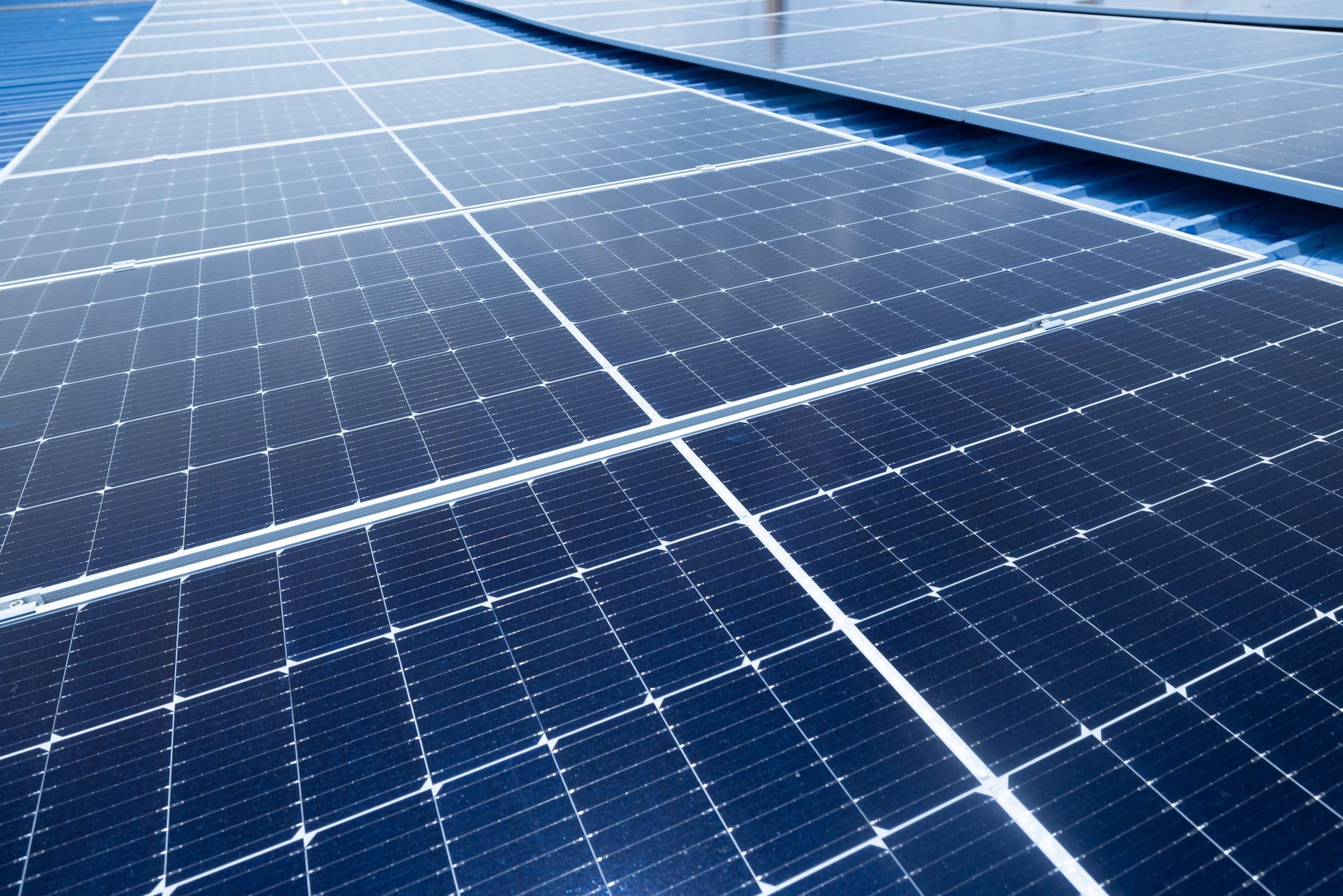ProfiNRG aims to play leading role in rollout of large battery systems
Storing electricity is an inseparable part of the energy system of the future. Currently in the Netherlands, all signals are green for the large-scale introduction of battery systems for the utility and C&I market. 'The political climate, the technical solutions and the business cases are there and we want to play a leading role in this,' says Cees van de Werken, CEO of ProfiNRG. 'We are going to do that as an agile innovative party that combines quality with competitive pricing.'
Europe is stepping up its energy transition with the Green Deal. In 2021, the EU presented a large package of measures that will make it possible to emit 55 per cent less greenhouse gases in 2030. The target regarding the share of renewable energy in 2030 was adjusted from 32% to 40%. Meanwhile, that reality has already been overtaken by current events. The day after Russia's invasion of Ukraine, EU President Ursula von der Leyen spoke of the need for an energy-independent Europe and further accelerating energy transition. It was topped off with the new plan REPowerEU. Europe now wants to move towards 45 per cent renewable energy by the end of this decade; for this, among other things, the roll-out of solar panels must be doubled. Many member states have now moved.
Urgency
'Germany, for instance, presented a mega investment plan in renewable energy,' Van de Werken said. 'The urgency is also widely felt in the Netherlands. However, when accelerating towards a sustainable energy system, the options for now are limited; we will mainly have to make do with wind and solar energy. This brings with it legion of challenges. For instance, the mass roll-out of wind turbines is not going as fast as you would like. Solar energy is only produced when it is light and the yield depends on seasonal influences. So one of the big tasks is to solve the problem of simultaneity between energy generation and energy consumption. Storing renewable energy is a necessity, both in the long and short term. With this, a new phase in creating the energy system of the future is dawning.'
Fast and radical
Van de Werken started ProfiNRG in 2009. He pioneered the installation of solar panels on the roofs of private individuals and farms. The company has since grown into one of the market leaders in the Dutch market for large solar roofs and solar fields. ProfiNRG is an EPC (engineering, procurement and construction) and thus takes responsibility for the entire process of realising gutter solar energy systems for developers. In recent years, that world has been changing rapidly and radically, partly because of the limitations of the electricity grid in the Netherlands.
Energy supplier 2.0
Van de Werken: 'There are more and more locations in our country where grid congestion is a major problem. In those places, large solar energy systems cannot be connected or can only be partially connected. As a result, the energy transition and the growth of the solar sector is stagnating. However, a battery storage system can provide a solution in many cases. I am convinced that in the foreseeable future no solar roof or park will be built without a battery. Customers already often ask us about the possibilities. They will increasingly play the role of energy supplier 2.0; flexibly switching off when needed, supplying directly to end users and storing solar power for later use. The days of generating as much solar power as possible and always being able to inject it into the grid are over.'
Spectacular
Few large storage systems have been installed in the Netherlands by 2022. However, Berend Schols, Solution Manager Energy Transition at ProfiNRG indicates that this is rapidly changing. A large number of projects are in the pipeline, and that has everything to do with the emergence of positive business cases.
'Three-quarters of a year ago, there was no revenue model for large battery containers,' Schols says. 'Now there is. That has everything to do with the volatility of electricity prices. Thanks to the amount of solar energy we are already generating, the price of electricity drops dramatically on sunny days; it is even increasingly negative. At other times, it skyrockets. This means that you can usually make the investment in a battery right now by trading on the day-ahead market.
That will remain a stable business case with further rollout of solar PV, where, for example, trading on the frequency market is finite because it does not allow more than 110 megawatts of assets. The other side of the coin concerns connection utilisation of solar farms. Full-load hours are limited - about 12.5 per cent on average over a year. With a battery, you can utilise this connection 100% by using the battery for energy trading when the sun is not shining.'
Ahead of the troops
One of ProfiNRG's clients is sister company Sunvest. For that developer of solar parks, it is building, among other things, Zonnepark Zuidbroek on the A7 in the province of Groningen. There, it is combining a 50 megawatt peak solar field with a 20 megawatt-hour battery. This puts ProfiNRG ahead of the troops in terms of utility-scale energy storage in the Netherlands. One of the aims of this project is to gain experience, for instance in technical design, the match between generation and storage capacity, the construction of the system, the behaviour and control of the battery and what you can earn from it. In this way, ProfiNRG is sorting for the emergence of a crowded market.
Sharp pricing
Schols: 'With our knowledge of solar farm construction and behaviour, we naturally have an edge. At the same time, there is still a lot to learn in terms of applying large battery systems, also with regard to cooperation with our partners, energy suppliers and grid operators for instance. Moreover, there are many parties entering this market. Among other things, we want to distinguish ourselves as a provider of quality with competitive pricing. This is also possible as an agile, innovative and independent company. The same applies with regard to commercial and industrial storage systems, which will definitely break through in the Netherlands this year.
We offer companies battery systems from 500 kilowatt hours to many megawatt hours. This can be done in combination with laying solar panels, as an addition to already existing renewable energy systems and even separately. For example, they can increase self-consumption of solar power or meet their energy needs when obtaining or increasing grid connection is an issue. In that market, too, ProfiNRG definitely wants to be a leading player.'



